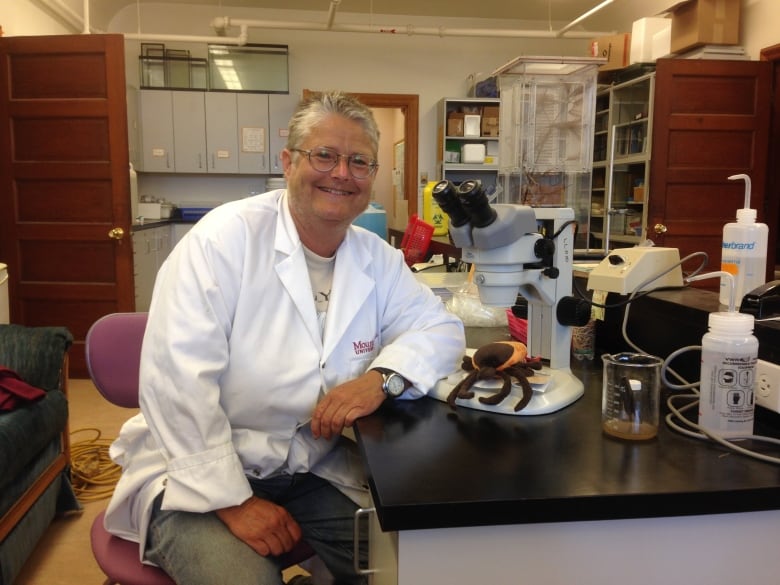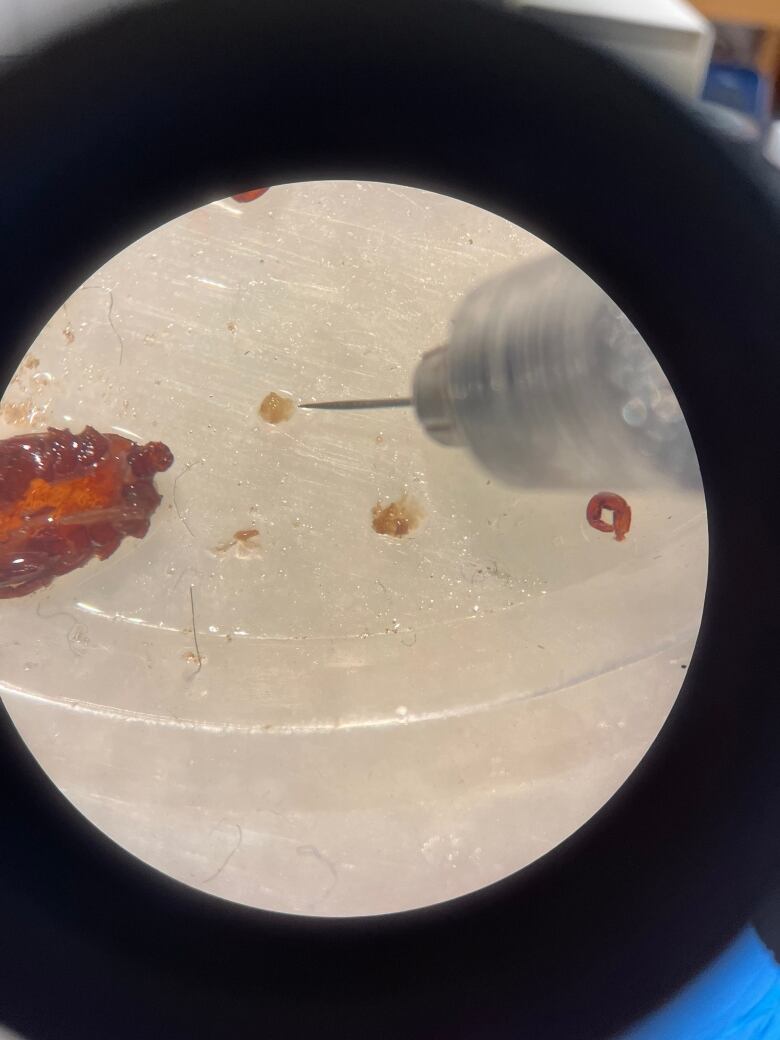Don't throw away that deer tick. Researchers at Mount Allison want to study it
Study may help reduce the risk of humans contracting Lyme disease

When most Maritimers find a tick on themselves or their animals, their first instinct is to pull it off and destroy it.
But researchers at Mount Allison University are trying to get people to send those ticks their way instead.
Graduate student Ebruvibiyo Daniella Ibruand her supervisor VettLloyd, a professor of biology at the Lloyd Tick Lab, are embarking on a study that may eventually help reduce the risk of humans contracting Lyme disease.
Lloyd was originally working in the field of cancer but switched her focus to ticks after being bitten by one and contracting Lyme disease.

They are investigating a phenomenon in whichBorrelia burgdorferi the bacteria that causes Lyme disease exercises a form of mind control over the ticks it infects. That causes them to engage in riskier and more aggressive behaviour and makes them more of a threat to humans.
"If they have this bacteria, they're actually hardier and they're more likely to take risks in finding blood," Lloyd said.
"A good old tick that might normally have been satisfied with a wild mouse ...is now going to be hunting more aggressively for people or pets, which is what this project is all about."
Climate change has also resulted in shorter winters and less snow, Lloyd said,helping the insects survive and making them more of a threat to humans.

Ibru, a visiting student from Nigeria,is appealing to people living in Nova Scotia, New Brunswick, Ontario and Quebec who encounter deer ticks to place them in a sealed container with a moist paper towel and send them to the lab, where she can work on them.
She said once people are ready to send the ticks they can contact her by email and she will send them a courier shipping label.
She said they were calling for any species of tick initially, but they are now asking specifically for deer ticks.
She said if people aren't sure about the species they have they can send the tick in and the lab will figure it out.
According to Lloyd, Nova Scotia probably has the highest ratio of ticks to humans in Canada and Nova Scotians have been "very generous" in sending in their ticks.
Ibru said a woman from Nova Scotia contacted her recently and said she usually gets at least 50 ticks off her dog every time she takes it for a walk.
Once she receives the ticks, Ibru said, she dissects the brain and the rest of the body is tested for Lyme disease.
"We're not sure if we'll be able to get enough RNA from one tick brain versus acluster of tick brains," she said. "So we might need as many as 500 ticks for this project."
Lloyd said the hope is that the study will help them figure out why the bacteria make the ticks more aggressive and more likely to bite and help them identify what scientists can do to ensure fewer people get infected.
"Honestly, I cansay I've never been so excited to have this many ticks sent to me," Ibru said with a chuckle.
MORE TOP STORIES












_(720p).jpg)


 OFFICIAL HD MUSIC VIDEO.jpg)
.jpg)



























































































